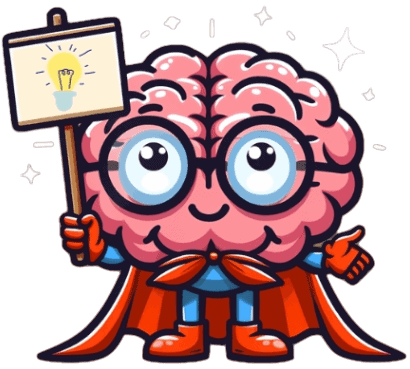
The Critical Importance of Basic First Aid Knowledge
First aid, the initial assistance given to someone suffering from an injury or illness, is crucial in preventing situations from worsening. A basic understanding of first aid can make a significant difference in emergencies. Untrained individuals might be unsure how to respond in a crisis, potentially leading to delayed treatment or incorrect care. This hesitation or mismanagement can exacerbate injuries or health problems, sometimes leading to severe consequences.
Immediate Response to Emergencies
In many cases, the first few minutes following an accident or health episode are critical. Immediate and correct first aid can stabilize a patient, reduce their pain, and sometimes even save their life. Knowledge of basic first aid allows individuals to promptly assess a situation and provide necessary care, like CPR or controlling bleeding, until professional medical help arrives.
Reducing Recovery Time and Complications
Proper first aid can not only save lives but also significantly reduce recovery time. For example, correctly treating a burn or a fracture at the scene can prevent further damage and complications. This early intervention can lead to a smoother and quicker recovery process, minimizing the long-term impact of the injury.
Psychological Benefits and Confidence
Knowing basic first aid can instill confidence in individuals, enabling them to remain calm and collected during emergencies. This composure is crucial, as panic can often lead to poor decision-making. The ability to provide immediate assistance also offers psychological benefits to the caregiver, as they feel more empowered and capable of helping in critical situations.
The Risks of Ignorance in First Aid
Lack of first aid knowledge isn’t just a personal shortcoming; it poses risks to both the individual and those around them. Ignorance in this area can lead to inadequate care or harmful interventions, which might worsen the situation.
Misguided Actions Can Cause Harm
Without basic first aid knowledge, people might unknowingly cause more harm than good. For example, incorrect CPR technique can lead to additional injuries, and improper handling of a spinal injury can have catastrophic consequences. It’s vital to understand the correct procedures to avoid unintentional harm.
Delayed Medical Assistance
Individuals unfamiliar with first aid may hesitate to provide help, leading to delayed medical intervention. This delay can be critical in emergencies like heart attacks or severe bleeding, where every second counts. An untrained person might also fail to recognize the severity of a situation, further delaying the call for professional help.
Increased Healthcare Costs
Inadequate or incorrect first aid can lead to more severe health complications, resulting in higher medical costs. Simple first aid measures, when applied correctly, can prevent conditions from escalating, thereby reducing the need for extensive medical treatment.
The Societal Impact of First Aid Awareness
First aid knowledge extends beyond individual benefits; it has a significant societal impact. A community well-versed in basic first aid can collectively contribute to a safer and more resilient environment.
Enhanced Community Safety
Communities with a higher number of individuals trained in first aid are generally safer. In public emergencies, such as natural disasters or accidents, these individuals can provide crucial assistance, reducing the overall impact of the crisis.
Fostering a Culture of Care and Responsibility
Promoting first aid education cultivates a culture of care and responsibility. People who are trained in first aid are more likely to take proactive steps in ensuring their own and others’ safety. This mindset benefits society as a whole, encouraging a more empathetic and supportive community.
Supporting Overburdened Medical Systems
In emergencies, first responders and medical systems are often stretched to their limits. Basic first aid knowledge among the public can ease some of this burden by providing initial care and preventing minor injuries from escalating into major ones.
Opportunities for Learning Basic First Aid
Learning basic first aid is more accessible than many might think. There are numerous avenues available for individuals to gain these lifesaving skills, catering to different learning styles and schedules. Embracing these opportunities can empower individuals with the confidence and knowledge to act effectively in emergencies.
Local Community Centers and Hospitals
Many community centers and hospitals offer first aid training courses. These courses are often conducted by certified professionals and may include hands-on practice sessions. They are ideal for those who prefer in-person learning and direct interaction with instructors.
Online Courses and Certifications
For those with busy schedules or a preference for remote learning, numerous online platforms provide first aid training. These courses can range from basic to advanced levels and often come with certification upon completion. Online courses offer the flexibility to learn at one’s own pace and in the comfort of their home.
Workplace Training Programs
Some employers provide first aid training as part of their workplace safety programs. These training sessions are typically designed to address specific hazards relevant to the job environment. Participating in these programs not only enhances personal skills but also contributes to a safer workplace.
Volunteer Organizations
Organizations such as the Red Cross, St. John Ambulance, and other local rescue services often provide first aid training. Volunteering with these organizations not only offers training but also provides practical experience in dealing with real-life emergencies.
Schools and Educational Institutions
Schools and educational institutions sometimes incorporate first aid training into their curriculum. This early education in first aid can instill lifelong skills and awareness among young people.
Customized Courses for Specific Needs
For individuals with specific needs or interests, such as outdoor enthusiasts or parents of young children, there are tailored first aid courses available. These specialized courses focus on scenarios and treatments relevant to particular situations, such as wilderness first aid or pediatric first aid.
In conclusion, the availability of first aid training is widespread and varied, making it accessible to almost everyone. Whether through in-person workshops, online platforms, workplace programs, volunteer services, educational institutions, or specialized courses, there’s an option that fits every learning style and need. Gaining these skills not only benefits the individual learner but also their families, workplaces, and communities at large.






Leave a Reply